A high-protein diet plan focuses on increasing protein intake to support muscle growth, weight management, and overall health. It emphasizes lean meats, fish, eggs, legumes, and dairy, providing essential amino acids for energy and satiety. Balancing protein with fiber and healthy fats ensures a nutritious and sustainable approach to dieting.
Why High-Protein Diets Are Beneficial
A high-protein diet offers numerous health benefits, including muscle maintenance, weight management, and improved bone health. Protein helps build and repair tissues, reducing muscle loss during weight loss. It also increases satiety, making it easier to stick to calorie-restricted plans. High-protein diets can improve blood sugar control and boost metabolism, supporting overall metabolic health. Additionally, protein is essential for immune function and energy production, making it a cornerstone of a balanced and nutritious lifestyle. Incorporating adequate protein ensures the body functions optimally, especially for those with higher energy needs or specific health conditions like cancer, where protein requirements are elevated.
Key Components of a Protein Diet Plan
A well-structured protein diet plan emphasizes high-quality protein sources, including lean meats, fish, eggs, dairy, legumes, and plant-based alternatives. It also incorporates healthy fats, whole grains, and fiber-rich vegetables to ensure balanced nutrition. Adequate hydration and mindful portion control are essential components. The plan should outline daily protein goals based on individual needs, typically 1.2-1.5 grams per kilogram of body weight. Additionally, it includes strategies for meal timing, such as distributing protein intake across meals, and offers flexibility for different calorie requirements. This approach ensures sustained energy levels and supports overall health while meeting dietary preferences and lifestyle demands effectively.
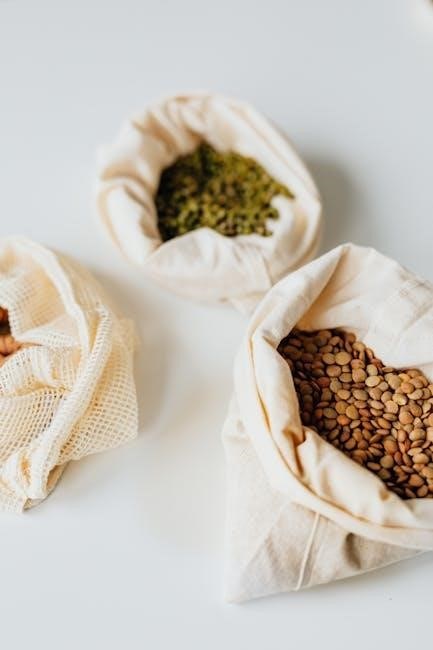
7-Day Protein Diet Plan Overview
A structured 7-day plan providing 1,500-2,000 calories, with high protein intake (82+ grams/day) and balanced fiber. Includes flexible meal options to suit varying dietary needs and preferences.
Calorie and Protein Goals (1500-2000 Calories)
For a 1500-2000 calorie diet, aim for 82-100 grams of protein daily. This supports muscle maintenance and weight management. Meals are balanced with fiber (30+ grams) to enhance satiety and digestion. Protein sources include lean meats, fish, eggs, legumes, and dairy. Caloric needs vary based on activity level and weight goals, allowing adjustments to meet individual requirements. This range ensures adequate nutrition while promoting a healthy lifestyle.
Sample Daily Meal Structure
A typical day starts with a protein-rich breakfast, such as a shake or eggs, followed by balanced meals and snacks. Mid-morning snacks include nuts or yogurt, while lunches feature lean meats or fish with vegetables. Afternoon snacks might be fruits or hard-boiled eggs. Dinners focus on grilled proteins with whole grains and fiber-rich sides. Evenings can include an optional light snack. Meals are spaced to maintain energy levels, ensuring protein and fiber intake are spread evenly throughout the day. This structure supports muscle maintenance, satiety, and overall nutrition, with options to adjust portion sizes based on individual calorie needs.
Modifications for Different Calorie Needs
Calorie needs vary, so adjustments to portion sizes and food choices are essential. For higher calorie requirements, increase protein and healthy fat portions, such as adding avocado or nuts. Lower calorie plans may reduce serving sizes or omit calorie-dense snacks. Balance macronutrients by adjusting carbs and fats while maintaining protein intake. For example, swap whole grains for lower-carb alternatives or add extra vegetables to boost fiber without adding calories. Staying hydrated and incorporating physical activity supports metabolism. Tailor meals to individual goals, ensuring a balanced and nutritious diet that meets specific energy and protein requirements while promoting overall health and sustainability.
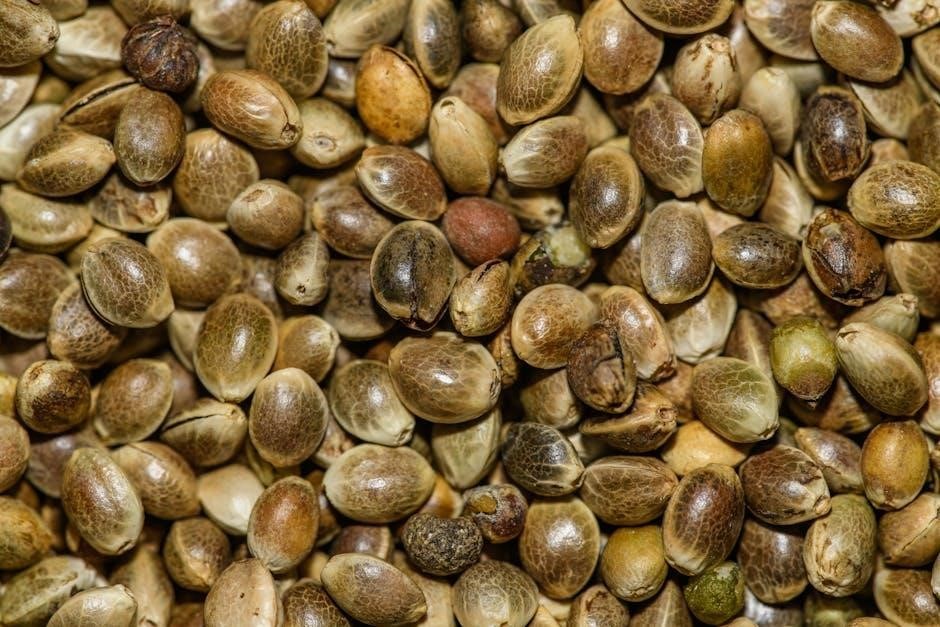
How to Increase Protein and Energy in Your Diet
Incorporate protein-rich foods like lean meats, eggs, and legumes, and add healthy fats for sustained energy. Protein powders and nuts are convenient options to boost intake.
Practical Tips for Boosting Protein Intake
Start your day with a protein-rich breakfast, such as eggs or Greek yogurt. Incorporate plant-based proteins like beans and lentils into meals. Snack on nuts or hard-boiled eggs for quick protein boosts. Use protein powders in smoothies or oatmeal for added convenience; Plan meals around lean meats, fish, or tofu. Pair protein with complex carbs for balanced energy. Keep protein-rich snacks readily available to avoid low-energy moments. Aim to include a protein source in every meal to meet daily goals effectively and maintain muscle health.
Balancing Protein with Fiber and Other Nutrients
Balancing protein with fiber and other nutrients ensures a well-rounded diet. Include whole grains, vegetables, and legumes to boost fiber intake, aiding digestion and satiety. Pair protein sources like lean meats or beans with fiber-rich foods to enhance nutrient absorption. Incorporate healthy fats from nuts, seeds, and avocados for energy and brain health. Aim for a variety of colorful fruits and vegetables to provide essential vitamins and minerals. This balanced approach supports overall health, energy levels, and long-term weight management. Combining protein, fiber, and other nutrients creates a sustainable and nutritious high-protein diet plan for optimal well-being.

Sample Menus for Specific Calorie Goals
Sample menus cater to specific calorie goals, ranging from 1000 to 2000 calories daily, ensuring adequate protein and fiber for balanced nutrition and tailored to meet individual dietary needs.
1000-1500 Calorie Meal Plan
A 1000-1500 calorie meal plan focuses on lean proteins, low-fat dairy, and high-fiber foods to promote weight loss while maintaining muscle mass. Breakfast options include protein shakes or eggs, paired with vegetables. Lunch features grilled chicken or fish with quinoa and steamed greens. Dinners are light, with turkey or tofu stir-fries. Snacks like Greek yogurt or hard-boiled eggs keep protein levels steady. Portion control and nutrient balance ensure meals are satisfying and meet daily protein goals of 60-80 grams, supporting overall health and energy needs without excess calories.
1800-2000 Calorie Meal Plan
An 1800-2000 calorie meal plan is ideal for individuals with higher energy needs, such as active adults or those aiming to build muscle. It includes hearty portions of lean proteins like grilled chicken, fish, and legumes, paired with whole grains and vegetables. Breakfast might feature eggs with whole-grain toast and avocado, while lunch could include a turkey and quinoa salad. Dinners focus on balanced meals like baked salmon with sweet potatoes and broccoli. Snacks such as Greek yogurt or nuts are added to maintain energy levels. This plan ensures a balance of protein, healthy fats, and complex carbs, supporting both muscle growth and overall nutrition.
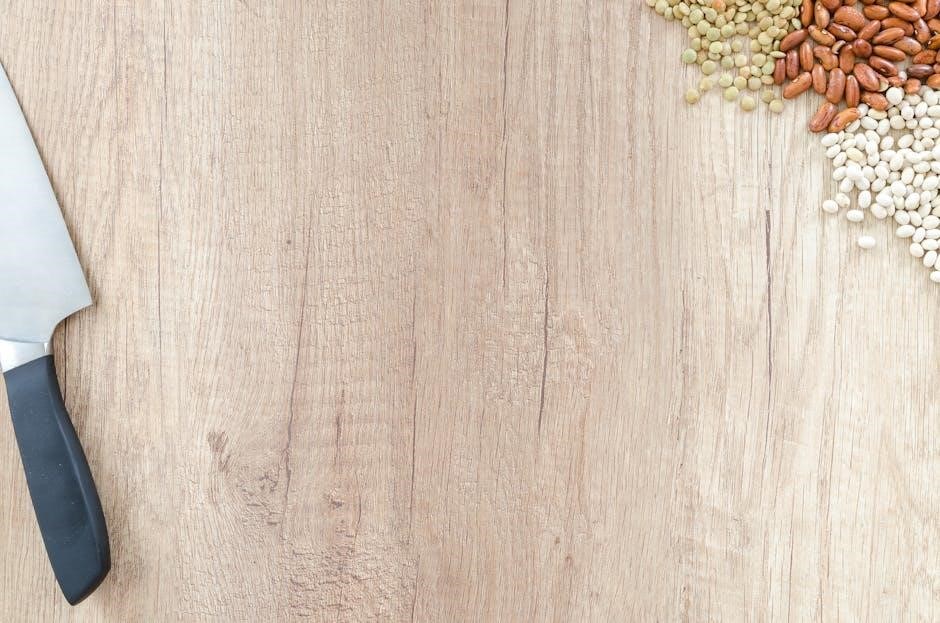
The Role of Protein Powders and Supplements
Protein powders and supplements are convenient tools to boost daily protein intake, ideal for those struggling to meet goals through whole foods alone. They offer versatility, supporting muscle maintenance and recovery, and are easily incorporated into meals or snacks, making them a popular choice for active individuals and those with specific dietary needs.
How to Incorporate Protein Powders
Protein powders are a versatile and convenient way to enhance your diet. Add them to smoothies, mix into oatmeal, or blend with yogurt for a quick protein boost. They can also be used as a base for homemade energy bars or baked goods. For those with busy lifestyles, protein powders offer an easy solution to meet daily protein goals. Experiment with flavors and recipes to keep your diet engaging. Additionally, they are ideal for post-workout recovery, helping to repair and build muscle efficiently. Incorporate them strategically to complement whole-food sources and maintain variety in your high-protein meal plan.
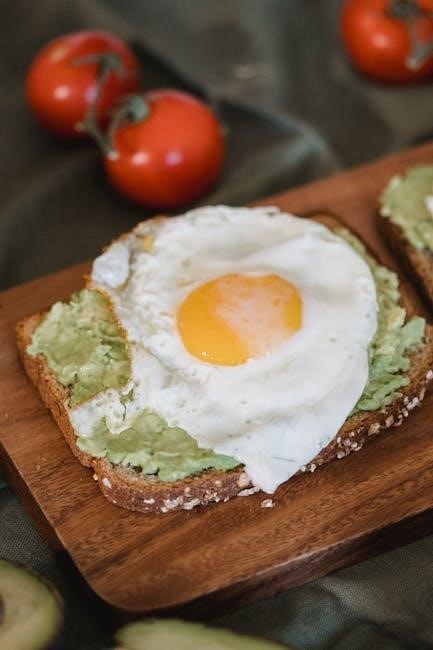
High-Protein, High-Energy Diet for Specific Needs
A high-protein, high-energy diet is tailored for individuals like cancer patients, requiring 1.2-1.5g of protein/kg/day and adequate calories to maintain strength and fat stores, aligning with specific health needs.
Protein Requirements for Cancer Patients
Cancer patients often require a high-protein diet to maintain muscle mass and support immune function during treatment. The recommended intake is typically 1.2-1.5 grams of protein per kilogram of body weight daily. This helps combat muscle wasting and supports recovery. Factors like the stage of cancer and overall health may influence individual needs. Incorporating lean meats, fish, eggs, legumes, and dairy products can help meet these goals. Additionally, protein shakes or supplements may be recommended to ensure adequate intake, especially for those with reduced appetite. Consulting a healthcare provider or dietitian is crucial to tailor the diet to specific needs and enhance overall well-being.

30-Day Meal Plan Ideas
A 30-day meal plan offers structured protein-rich recipes, balancing variety and nutrition. It includes high-protein grains, lean meats, and plant-based options, ensuring sustained energy and satisfaction; Optimize health and taste with creative meals.
Incorporating Mediterranean Diet Principles
Incorporating Mediterranean diet principles into a protein diet plan emphasizes whole, nutrient-dense foods like fruits, vegetables, whole grains, legumes, and healthy fats. Protein sources include lean meats, fish, and dairy, while plant-based options like lentils and chickpeas are also highlighted. This approach focuses on variety and balance, ensuring adequate protein intake while promoting overall health. Meals often feature grilled fish, poultry, or tofu paired with colorful vegetables and whole grains. The Mediterranean diet’s emphasis on fresh, unprocessed ingredients aligns well with high-protein goals, offering a sustainable and flavorful way to meet nutritional needs. This combination supports energy levels and long-term well-being effectively.
A high-protein diet plan offers numerous health benefits, including muscle maintenance and weight management. By focusing on nutrient-rich foods and balanced meals, individuals can achieve sustainable results and improved well-being.
Final Tips for Succeeding on a Protein Diet Plan
Sticking to a high-protein diet requires planning and consistency. Incorporate protein-rich foods like lean meats, fish, and legumes into every meal. Consider meal prepping to save time and ensure adherence. Stay hydrated and listen to your body’s nutritional needs. Pair protein with fiber and healthy fats for balance. Track your protein and calorie intake to meet goals, and don’t hesitate to seek professional guidance for personalized advice. Remember, patience and persistence are key to achieving long-term success with a high-protein diet plan.
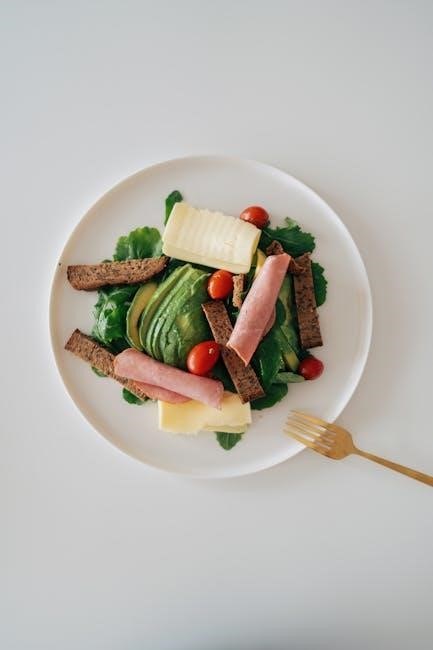
Leave a Reply
You must be logged in to post a comment.